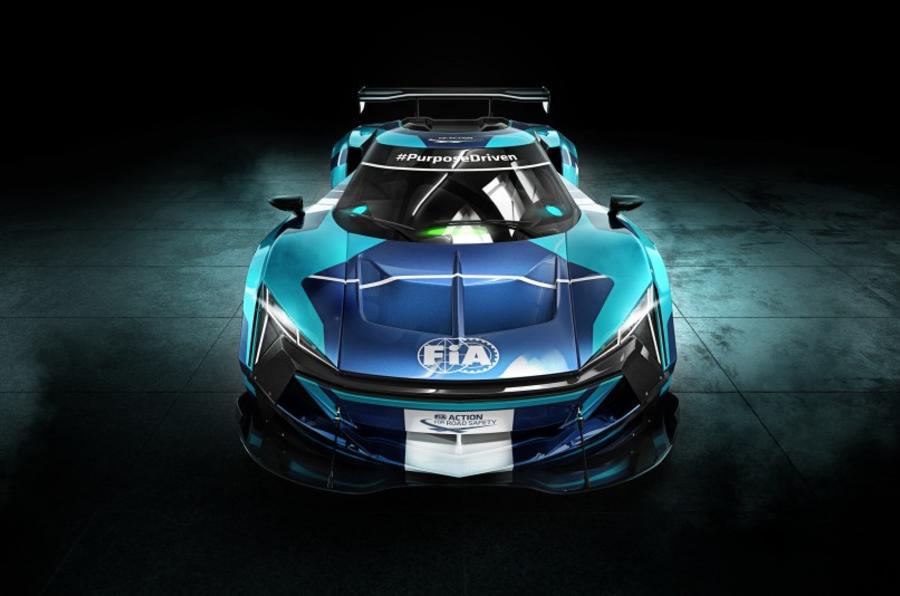The governing body of global motorsport, the FIA, has announced a groundbreaking electric sports car racing category that's designed to serve as a platform for manufacturers to develop road cars.
Racing at full-length, permanent circuits, the new racers will be based around the GT3 category, but the FIA is promising that they “will exceed their combustion engine-powered counterparts in areas such as acceleration and qualifying pace”. The 0-62mph time is estimated at 2.4sec and top speed at 186mph, with up to four motors allowed.
The FIA is convinced the technical regulations will deliver high-watermarks for electric motorsport in terms of range and performance.
The body is keen to encourage competition from both manufacturers with existing sports car programmes as well as EV specialists that haven’t previously competed in racing. A balance is being struck between pushing creativity and keeping costs under control.
Depending on the base car used, the minimum weight will be between 1490kg and 1530kg, with a maximum power of 577bhp. The weight limit is slightly up on GT3 cars, but the FIA says this is a deliberate cost-saving ploy.
Sports car racing traditionally revolves around endurance races, so for the new series, ultra-rapid charging is promised for mid-race pitstops, with a peak rate of 700kW, giving a recharge time of a few minutes to reach 60% capacity. Currently, the fastest roadside EV chargers can hit 350kW.
Charging facilities at circuits remain vague at this stage, but the FIA is promising that “the charging network will be developed to meet the fast charging requirements and, depending on the venue, will include elements of permanent and temporary infrastructure.”
Unlike Formula E, competing manufacturers will be allowed to choose and build their own bespoke battery layouts. These will be supplied by Saft, a subsidiary of the Total oil company, which has designed lithium-ion pouch cells for the new series. Battery capacity is limited to 87kWh, while the maximum energy regeneration permitted is 700kW.
Further developmental freedoms will run to manufacturers being able to choose their own powertrain set-ups, with both two- or four-wheel drive being allowed. Torque control will also be allowed at each wheel.
READ MORE
Extreme E 2021 series preview: "A new volume of motorsport history"










Join the debate
Add your comment
Bad days...
Further developmental freedoms will run to manufacturers being able to choose their own powertrain set-ups, with both two- or four-wheel drive being allowed. Torque control will also be allowed at each wheel.
Electric...
As usual Soldi Makes stupid comments, You do realise that some GT and Lemans classes do spend minutes in the pits, with driver changes, fuel and bodywork adjustments, so this will be no different, it just means the crew will have to get their finger out to save every second, making it a better race........
Another inert racing formula idea that fans will struggle to get behind. And 'minutes' in the pits; how exciting. Time for the pit crew to put the kettle on and have a nice cuppa while the driver completes the crossword puzzle. Get real FIA.